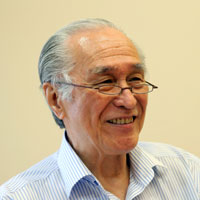TCM chain flourishes from local partership
By Pu Zhendong in Kuala Lumpur (China Daily) Updated: 2014-02-11 07:49Wei, with a specialty in digestive and urinary illnesses, has worked in Kuala Lumpur for five years.
|
 |
|
Tan Kai Hee, group managing director of the Hai-O Group. |
Wei took his pulse, asked about his condition and felt that the temporary paralysis came from nerve injury caused by kidney damage during the surgery. He prescribed acupuncture, and other physical therapy, and symptoms were all gone within a year, he said.
Clash of cultures
However, communication between TCM doctors and local patients has been difficult at times, particularly where Chinese is not the patient's first language. In other cases, patients seem impatient with the TCM treatments they are given and stop applying them before they can take effect.
"The patients come to Tongrentang with the same expectations they have of Western-style doctors, and they do not cooperate with our treatments," Wei said. "Sometimes they stop halfway through, and previous efforts are wasted."
TCM is a well-established system of medical practice developed through thousands of years of empirical testing and the refinement of herbal mixtures. The accumulated clinical experience it represents is vast.
Yong Kian Yin, owner of a pharmacy in Kuala Lumpur, said Chinese medicine is not only popular among the Chinese community, but is also well-received by other ethnic groups, such as Malays and Indians.
Open for more than 30 years, Yong's shop sells a variety of Chinese medicines, including Tongrentang products and some others rarely seen in China. He said Angong Niuhuang Powder, a best-selling Tongrentang drug that helps clear away heat and toxic materials in the human body, is among the most popular medicines.
"More than a century ago, when our ancestors sailed across the oceans to settle down in Malaysia, they brought traditional Chinese medicines to save lives and better adapt to the harsh conditions. Later on, Malays and Indians gradually gained confidence in the reliable therapeutic effects of these medicines," Yong said.
"TCM's acceptance here means that Chinese culture is being promoted," he said.
Promoting TCM in the Muslim country can be difficult sometimes, Tan said, because the authorities, unaware of the medical science and philosophy of TCM, impose restrictions, such as withholding permits allowing medicines to be used in hospitals.
"In fact, the ingredients in some of Tongrentang's exports to Malaysia have been slightly adjusted in accordance with halal standards to fit into Malaysian society," Tan said.
According to the China Association of Traditional Chinese Medicine, the output of the TCM industry is expected to hit $88 billion by 2017, with an annual growth rate of 12 percent.
- NHTSA says finds no 'defect trend' in Tesla Model S sedans
- WTO rare earth ruling is unfair
- Amway says 2014 China sales may grow 8%
- President Xi in Europe: Forging deals, boosting business
- CNOOC releases 2013 sustainability report
- Local production by Chery Jaguar Land Rover this year
- Car lovers test their need for speed in BMW Mission 3
- China stocks close mixed Monday

















